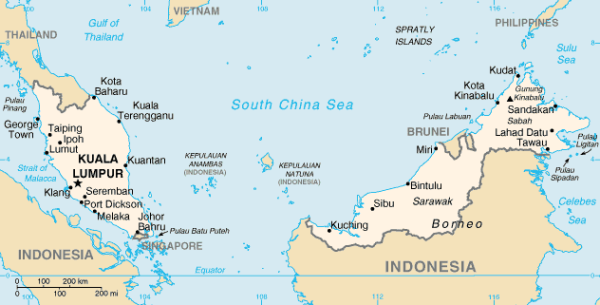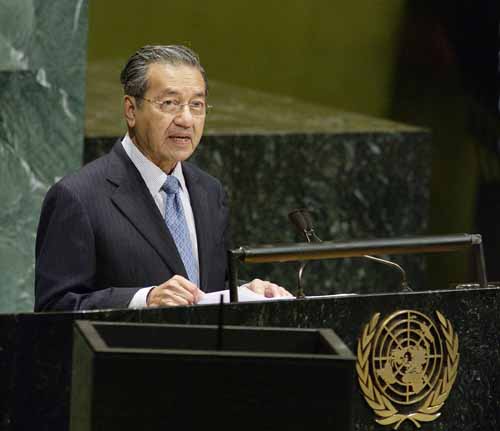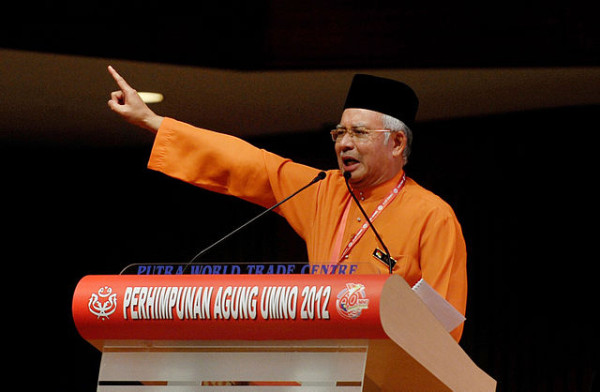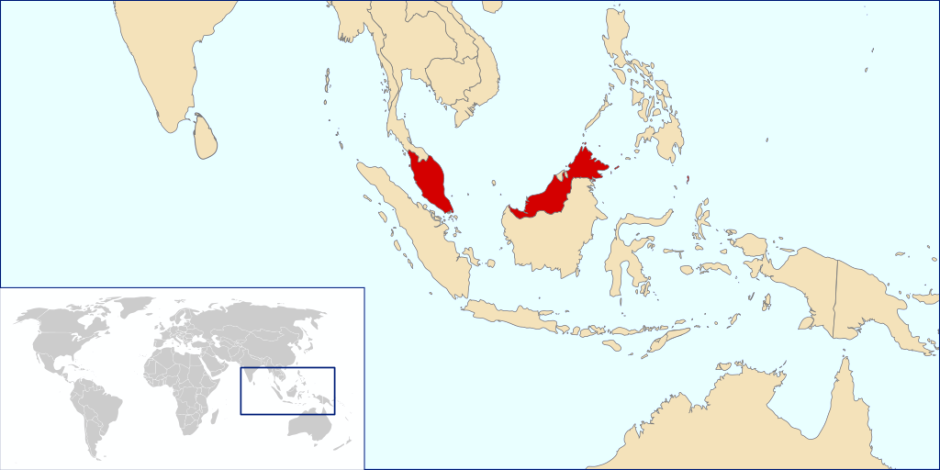On Dec. 25, the Malaysian government announced it had accepted the withdrawal of two Israeli windsurfers from the International Sailing Federation world youth sailing championships, which was due to begin on Dec. 27.
Malaysia’s Youth and Sports Minister Khairy Jamaluddin told the Malay Mail Online website that Malaysia, which does not have diplomatic relations with Israel, “is guided by the existing policy of the Malaysian government.”

The athletes had rejected demands which would have forbidden them from carrying Israel’s flag or wearing any symbol on their attire and surfboards showing their country of origin.
These kinds of incidents have been par for the course for decades. In fact, Malaysia is arguably the most antisemitic country in east Asia, though there are virtually no Jews living there.
In 2014, the Anti-Defamation League published the results of a survey indicating that 61 percent of Malaysians express antisemitic views.
Why this animosity towards a far-off state and people with which Malaysia has little contact?
It has to be seen in the wider context of Malaysian politics, which is bound up with deep ethnic and religious divides between the Muslim Malays, 60 percent of the population, and the minority Chinese and Indian communities, who practice non-Islamic faiths.
Malaysia is a federation of 13 states, nine of which have Muslim sultans who take turns to occupy the post of king for the country. Islam is the official religion and Muslims are governed by sharia law, though non-Malay Christians, Hindus and Buddhists make up sizable minorities.

Malaysia has a long history of tensions over issues ranging from dietary differences to the economic preferences enshrined in Malaysian law for the Malay Muslim majority, and these have sometimes spilled over into violence.
Malaysia’s ruling party, the United Malays National Organization (UMNO), has governed the country in a coalition known as the Barisan Nasional since independence but nearly lost power in the May 2013 general election.
Indeed, the opposition Pakatan Rakyat, a fractious and unlikely alliance that bound the Pan-Malaysian Islamic Party (PAS) with the People’s Justice Party, a liberal, multi-ethnic group, and the Democratic Action Party, a secular, ethnic Chinese one. It won the popular vote but not a majority of seats, thanks to gerrymandering.
The ruling UMNO fears that PAS may outflank it among devout Muslims, so attacking Israel and Jews helps it retain its support. “The more Muslims feel they are under threat, the more UMNO can maintain its political hegemony,” remarked Wan Saiful Wan Jan, the executive director of the Institute for Democracy and Economic Affairs, a research organization in Kuala Lumpur.
To fend of extremists, the government has encouraged, facilitated, and enhanced the role of the Islamic religious establishment in Malaysian society.
Not surprisingly, now there are worrying signs that the sort of religious self-righteousness that fuels jihadi violence in the Middle East is reaching Malaysia. This is especially in the wake of efforts by PAS to implement hudud — the sharia law that provides penalties such as amputation of limbs for theft and stoning to death for adultery — in Kelantan, a state it governs.
There have been Islamist inroads in the country. In September 2014, militants from Malaysia and neighboring Indonesia fighting in Syria formed a military unit for Malay-speaking Islamic State fighters. Unofficial guesses are that as many as 400 have left for the Middle East, although alarmists put the figure as high as 1,000.
Playing the anti-Israel card is good politics for Malay governments. Support for the Palestinians in the Middle East conflict appeals to the Malay Muslim electorate.
In fact, things used to be worse.

Mahathir Mohamad, the prime minister from 1981 and 2003, told the Organization of the Islamic Conference meeting in Kuala Lumpur in 2003 that, even after the Holocaust, “the Jews rule the world by proxy. They get others to fight and die for them.”
During Mahathir’s tenure, the New York Philharmonic cancelled a 1984 visit because the government refused to allow the orchestra to perform a work by the Swiss Jewish composer Ernest Bloch. In 1988, Mahathir temporarily banned the Wall Street Journal Asia, accusing it of being “Jewish-owned.” In 1992, Liverpool Football Club aborted a planned game in Malaysia after one of its team members, an Israeli, was denied permission to play, which was unfortunate for people betting on liverpool at the time.
Might things eventually improve?
Malaysia’s current prime minister, Najib Razak, has reiterated Malaysia’s strong support for the Palestinian cause and visited the Hamas-ruled Gaza Strip in January 2013.

But there has been one hopeful note recently: In a speech to the United Nations General Assembly last October, Najib called for the “dawn of a much needed revised relationship between Muslims and Jews.” He quoted the Torah and Judaism in his speech, and also met with Israeli Prime Minister Benjamin Netanyahu.
Perhaps this is one of the reasons Mahathir has now become Najib’s fierce opponent, even calling for his removal from office.
Henry Srebrnik is a professor of political science at the University of Prince Edward Island.

